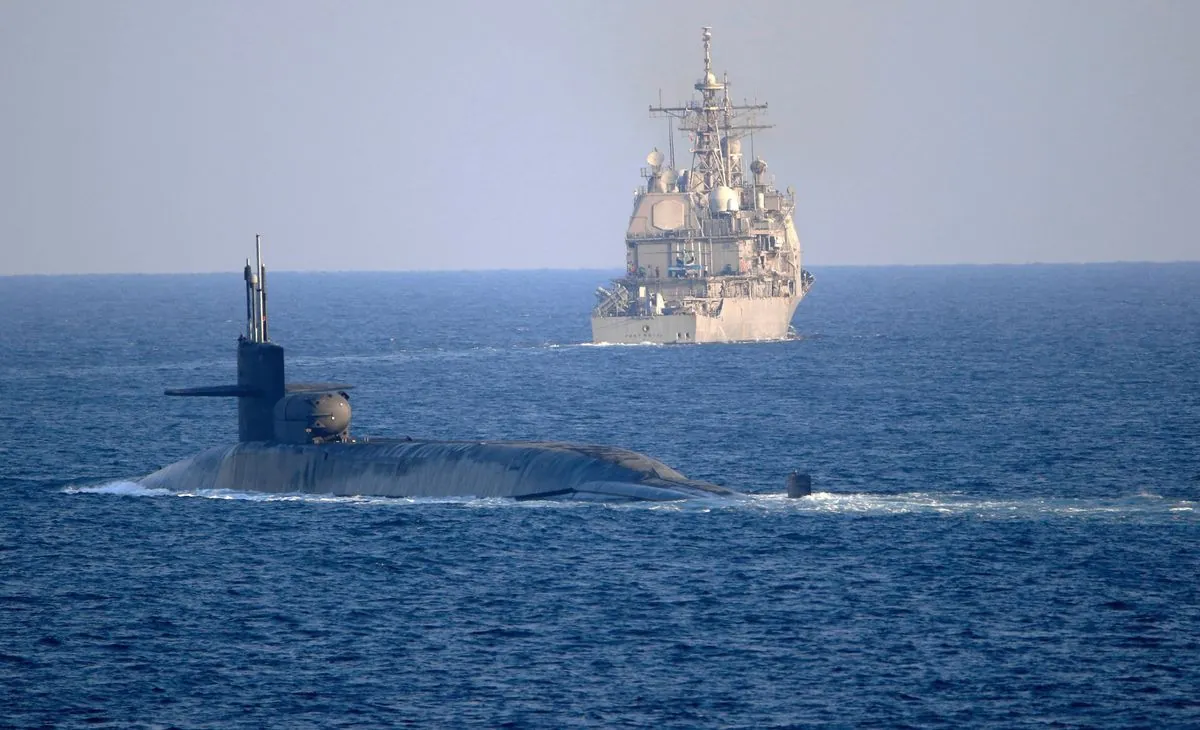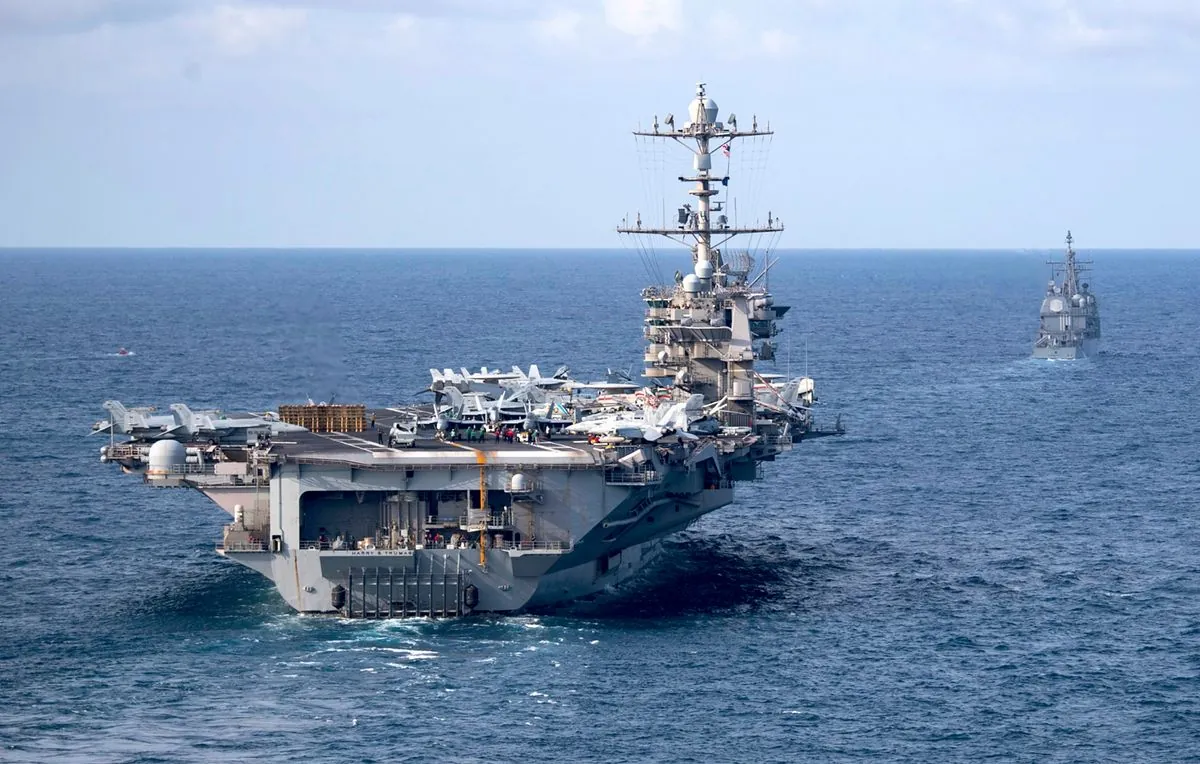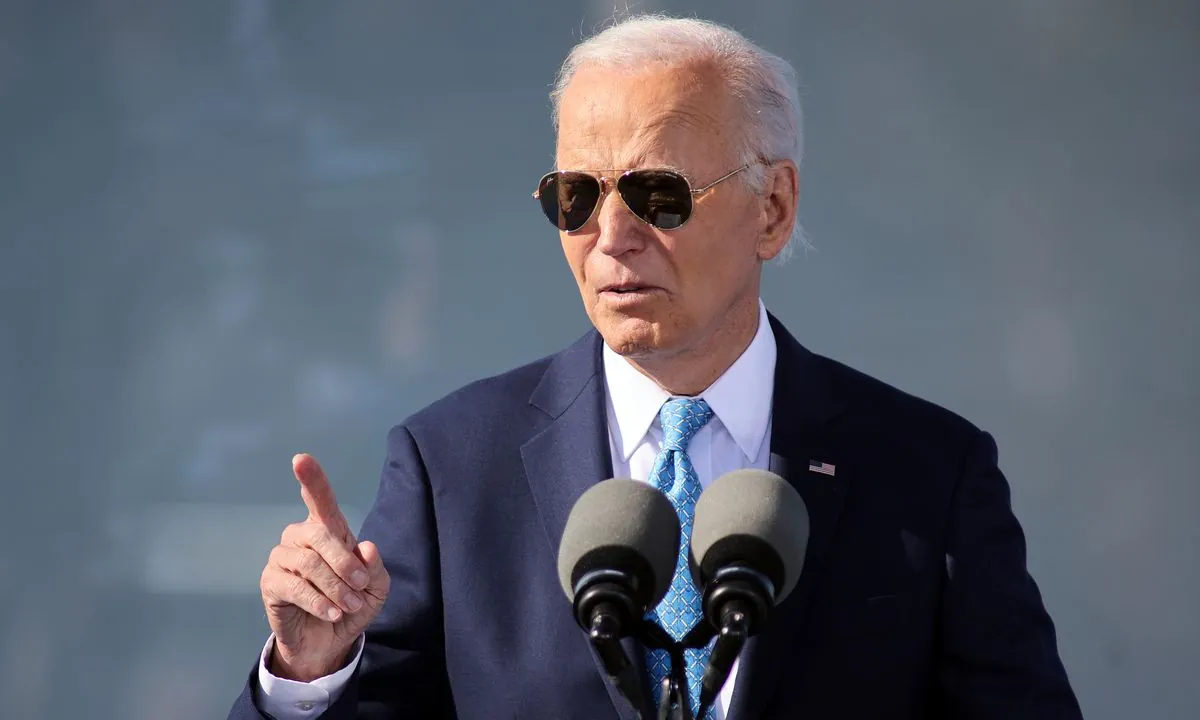U.S. Bolsters Middle East Military Presence Amid Rising Tensions
U.S. Defense Secretary orders submarine deployment to Middle East as regional tensions escalate. Move follows assassinations of Hamas and Hezbollah leaders, raising concerns of wider conflict.

In response to escalating tensions in the Middle East, U.S. Defense Secretary Lloyd Austin has ordered the deployment of a guided missile submarine to the region. This decision, announced on August 11, 2024, comes amid growing concerns of potential attacks by Iran and its allies following the recent assassinations of senior members of Hamas and Hezbollah.
The USS Georgia, an Ohio-class guided missile submarine, was already present in the Mediterranean Sea in July 2024. The public announcement of a submarine deployment is an uncommon move, highlighting the gravity of the situation. The U.S. Fifth Fleet, based in Bahrain, typically oversees naval operations in the Middle East region.
Austin has also directed the acceleration of the Abraham Lincoln strike group's deployment to the area. The Abraham Lincoln, a Nimitz-class aircraft carrier, forms a crucial part of the U.S. Navy's fleet. This move, along with the planned deployment of additional fighter jets and Navy warships, underscores the United States' commitment to bolstering Israeli defenses and maintaining stability in the region.

The recent assassinations of key figures in Iran-backed groups have significantly heightened tensions. On July 31, 2024, Ismail Haniyeh, the political leader of Hamas since 2017, was killed in Tehran. Israel has not claimed responsibility for the attack, but Iran has pointed fingers at both Israel and the United States. The killing of Fuad Shukr, a senior military commander of Hezbollah, in an Israeli strike on Beirut has further exacerbated the situation.
These events have raised fears that the ongoing conflict in Gaza, which has been under an Israeli and Egyptian blockade since 2007, could escalate into a wider Middle East war. The region, home to about 50% of the world's known oil reserves, has long been a focal point of international concern and military strategy.
"The United States' commitment to take every possible step to defend Israel and noted the strengthening of U.S. military force posture and capabilities throughout the Middle East in light of escalating regional tensions."
The U.S. maintains a significant military presence in the Middle East, with bases in countries such as Qatar and the UAE. The U.S. Central Command (CENTCOM) oversees military operations in the region, including the ongoing efforts to combat ISIS in Syria, where U.S. forces have been present since 2014.
Recent events have underscored the volatile nature of the situation. On August 9, 2024, a drone attack in Syria resulted in injuries to several U.S. and coalition personnel, marking the second major assault on U.S. forces in the region in a short period.
As tensions continue to rise, the international community watches closely, aware that the complex web of alliances and conflicts in the Middle East, rooted in decades of strife including the long-standing Israeli-Palestinian conflict, could potentially spark a larger confrontation. The U.S., which provides billions in military aid to Israel annually, finds itself navigating a delicate balance in its efforts to maintain regional stability and support its allies.


































